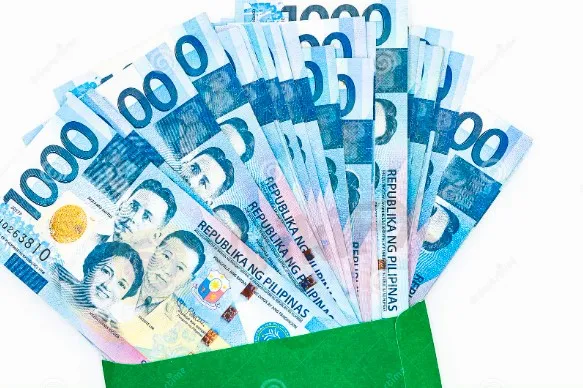简体中文
繁體中文
English
Pусский
日本語
ภาษาไทย
Tiếng Việt
Bahasa Indonesia
Español
हिन्दी
Filippiiniläinen
Français
Deutsch
Português
Türkçe
한국어
العربية
The Philippine Central Bank's modest rate hike raises bearish bets on the peso.
Abstract:Bearish bets on the Philippine peso increased as the central bank took a more cautious approach to tamping down inflation than its peers, while short positions on China's yuan eased following more stimulus and easing. COVID-19 restraints
Click Here: After you read it, Daily Routine with WikiFX
Short bets on the peso were at their biggest in at least four years amid concerns that the central bank's 25-basis-point boost this month won't curb inflationary pressures.
The peso has lost roughly 7% this year and is reaching a 16-1/2-year low.

The next governor of Bangko Sentral ng Pilipinas said the bank may contemplate greater rate hikes to strengthen the peso, but it won't match U.S. Federal Reserve policy tightening.
Bank of America analysts estimate a steady rate of tightening as the economy recovers and reopens.
Meanwhile, yuan bears receded on anticipation that removing COVID-19 limitations will boost the economy. The People's Bank of China hinted at accommodating policy, although its influence on the unit was modest.
The central bank restated its goal of making the yuan exchange rate more flexible and stable.
Short rupiah bets soared. Last week, Bank Indonesia kept rates at record lows and maintained a dovish approach, which analysts believe would weaken the currency.
The Indian rupee hit a record low on Wednesday amid fears about inflation, oil costs, and GDP.
Four-year high in rupee short positions.
Dealers favored Singapore's dollar. Singapore's primary consumer price index increased at its highest pace in almost a decade in May and is likely to peak around 4% in the third quarter.
Bearish bets on the South Korean won and Malaysian ringgit fell while Thai baht bets rose.
The Asian currency positioning survey asks analysts and investment managers about the Chinese yuan, South Korean won, Singapore dollar, Indonesian rupiah, Taiwan dollar, Indian rupee, Philippine peso, Malaysian ringgit, and Thai baht.
The poll uses net long/short positions from -3 to +3. +3 means the market is long U.S. dollars.
Non-deliverable forwards are included (NDFs).
Survey results (U.S. dollar vs. each currency):
Disclaimer:
The views in this article only represent the author's personal views, and do not constitute investment advice on this platform. This platform does not guarantee the accuracy, completeness and timeliness of the information in the article, and will not be liable for any loss caused by the use of or reliance on the information in the article.
Read more

BlackBull: A Closer Look at Its Licenses
When selecting a broker, understanding its regulatory standing is an important part of assessing overall reliability. For traders seeking to protect their capital, ensuring that a platform operates under recognised and stringent oversight can make all the difference. Keep reading to learn more about BlackBull and its licenses.

Dark Side of AETOS: They Don’t Want You to Know
AETOS is an Australia-based broker. All over the internet, you will find positive reviews about this broker, but no one is talking about the risks involved with AETOS. However, we have exposed the hidden risks associated with AETOS

Contemplating Investments in Quotex? Abandon Your Plan Before You Lose All Your Funds
Have you received calls from Quotex executives claiming to offer you returns of over 50% per month? Do you face both deposit and withdrawal issues at this company? Or have you faced a complete scam trading with this forex broker? You're not alone. Here is the exposure story.

15 Brokers FCA Says "Are Operating Illegally" Beware!
If a reputable regulator issues a warning about unlicensed brokers, it's important to take it seriously — whether you're a trader or an investor. Here is a list you can check out- be cautious and avoid getting involved with these scam brokers.
WikiFX Broker
Latest News
Global week ahead: Banking bellwethers and a tariffs waiting game
CNBC Daily Open: Solid earnings beats might mask tariff volatility these two weeks
Mastering Deriv Trading: Strategies and Insights for Successful Deriv Traders
BlackBull: A Closer Look at Its Licenses
Top Wall Street analysts are confident about the potential of these 3 stocks
Retirees are fleeing these 10 U.S. cities—most are in states where you need over $1 million to retire
In recent layoffs, AI's role may be bigger than companies are letting on
Stock futures are little changed as traders await big tech earnings, eye trade developments: Live updates
Asia markets set to open mixed as investors assess trade developments, await China benchmark rates
Asia markets trade mixed after China keeps key lending rates steady
Currency Calculator



